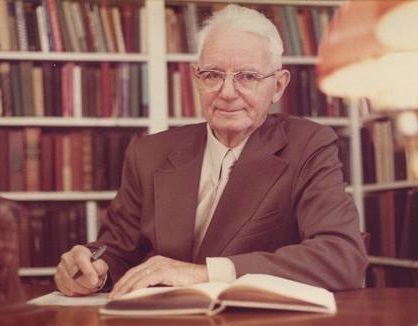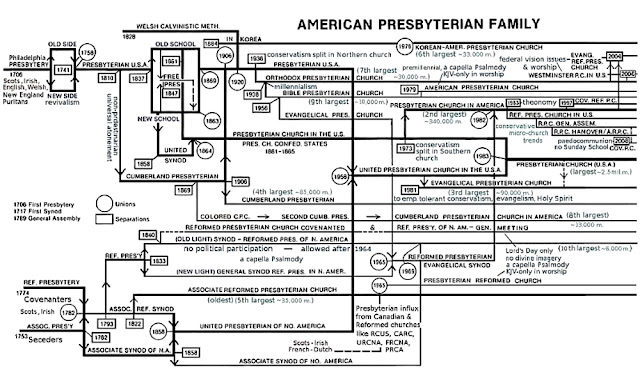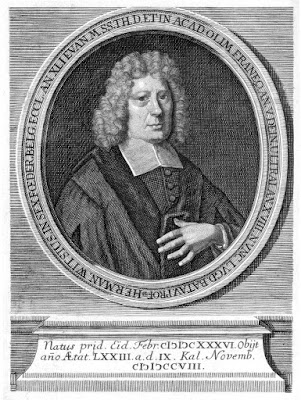Petrus van Mastricht (1630-1706)
Petrus (or Peter) van Mastricht (or Maastricht) (1630 – February 9, 1706) was a Reformed theologian.
 He was born in Cologne to a refugee from Maastricht during the Dutch revolt. His father's family name was originally "Schoning," but he changed it to "van Mastricht" on moving to Cologne. Petrus occasionally used the Latinized pseudonym Scheuneneus.[1] Johannes Hoornbeeck was Masticht's pastor from 1639 to 1643 and his teacher at the University of Utrecht starting in 1647, along with Gisbertus Voetius and others. From 1650 to 1652 he took a tour of study at Leiden University and possibly Oxford and the University of Heidelberg. From there he took pastorates at Xanten, Glückstadt, Frankfurt an der Oder, and Duisburg. While Mastricht is considered to be a follower of the school of Voetius, his Classis (ecclesiastical) in Xanten was predominantly Cocceian, a school to which Voetians were opposed.[2] For this reason, and because of some irenic statements Mastricht made, he is considered to have been somewhat ecumenical in contrast to the vitriolic polemics common between Voetians and Coccieans of his day.[3] He completed his master of arts and doctor of theology at the University of Duisburg in 1669 while serving as a pastor. Mastricht served as professor of Hebrew and theology at that university from 1670 to 1677. He then succeeded Voetius as professor of Hebrew and theology at the University of Utrecht in 1677. He also served as an elder and supply preacher for the classis of Amsterdam. He served there until he became too infirm and began teaching at home in 1700. He died February 9, 1706.[4]
He was born in Cologne to a refugee from Maastricht during the Dutch revolt. His father's family name was originally "Schoning," but he changed it to "van Mastricht" on moving to Cologne. Petrus occasionally used the Latinized pseudonym Scheuneneus.[1] Johannes Hoornbeeck was Masticht's pastor from 1639 to 1643 and his teacher at the University of Utrecht starting in 1647, along with Gisbertus Voetius and others. From 1650 to 1652 he took a tour of study at Leiden University and possibly Oxford and the University of Heidelberg. From there he took pastorates at Xanten, Glückstadt, Frankfurt an der Oder, and Duisburg. While Mastricht is considered to be a follower of the school of Voetius, his Classis (ecclesiastical) in Xanten was predominantly Cocceian, a school to which Voetians were opposed.[2] For this reason, and because of some irenic statements Mastricht made, he is considered to have been somewhat ecumenical in contrast to the vitriolic polemics common between Voetians and Coccieans of his day.[3] He completed his master of arts and doctor of theology at the University of Duisburg in 1669 while serving as a pastor. Mastricht served as professor of Hebrew and theology at that university from 1670 to 1677. He then succeeded Voetius as professor of Hebrew and theology at the University of Utrecht in 1677. He also served as an elder and supply preacher for the classis of Amsterdam. He served there until he became too infirm and began teaching at home in 1700. He died February 9, 1706.[4]
Mastricht, following his teachers Voetius and Hoornbeeck, saw theology as essentially practical, but did not see the use of scholastictheological method as antithetical to the practical use of theology for Christian piety.[5] He opposed the rising influence of Cartesianismamong the Reformed by writing treatises against Christopher Wittich, Petrus Allinga, and Balthasar Bekker.[6]
References[edit]
Bibliography[edit]
- Rester, Todd M. (2013). "Introduction: Petrus van Mastricht". In van Mastricht, Petrus. The Best Method of Preaching (PDF). Grand Rapids, MI: Reformation Heritage Books. https://www.webcitation.org/6GGhWjFiL from the original on 2013-04-30. Retrieved 2013-04-30.
Further reading[edit]
- Neele, Adriaan Cornelis (2009). Petrus van Mastricht (1630-1706).
External links[edit]
-----------------------------------------------------------------------------------
Recent News
Theological classic by Van Mastricht to be translated From Latin and Dutch to English
GRAND RAPIDS, Michigan - The Dutch Reformed Translation Society (DRTS), most recently known for the translation into English and publication of H. Bavinck’s Reformed Dogmatics, has now taken on the translation of lesser-known late seventeenth-century theologian Petrus van Mastricht’s Theoretico-Practica Theologia.
This work was especially influential in the Netherlands (via the Latin versions as well as the Henricus Pontanus Dutch translation of 1749-1753). In the British colonies in North America, leading theologian Jonathan Edwards praised this particular work above that of Turretin.
Van Mastricht’s method is to consider a loci of theology via an exegetical treatment proceeding to a series of didactic formulations, followed by a polemical treatment of objections that culminate ultimately in practical formulations for piety towards God and neighbour. Theoretico-Practica Theologia is divided into three parts, with the lion’s share of the 1300 page classic being part one.
The $125,000 project will likely be divided into four volumes. With an estimated two million words to translate, it is anticipated that publication of the first volume may be 3-5 years away. Calvin Seminary Ph.D. student Todd Rester, an expert in Latin and Dutch, has been contracted for the translation.
Peter Van Mastricht (1630-1706) succeeded Gisbertius Voetius as theology professor at Utrecht. His major work was first published in Latin in 1655, preceding a Dutch edition by over 90 years. In the Netherlands, Dutch eventually overtook Latin as the language of instruction at universities in the eighteenth century.
DRTS is publishing the Spirituality Series this year, which will feature writings by eight seventeenth and eighteenth century Dutch theologians (Taffin, Teellinck, Voetius, Hoornbeeck, Koelman, Udemans, Brakel, Schortinghuis and Van Lodestein).
From: http://www.godutch.com
Petrus van Mastricht (1630-1706)
Reformed Orthodoxy: Method and Piety


